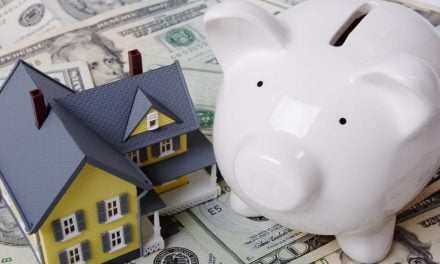It’s been ten years since the last economic recession, which saw the housing market hit rock bottom in sales volume and pricing. Experts are warning another recession is imminent — just when will the recession hit and how can real estate professionals prepare?
The answer to when the recession will arrive is actually fairly straightforward. Simply look at the yield spread, which is the difference between the short-term rate influenced by the Federal Reserve (the Fed) and the 10-year Treasury Note rate influenced by private bond market investors. This calculation historically predicts the likelihood of recession one year forward.
In 2018, the yield spread continues to decline, and will likely approach zero by 2019. Once the yield spread hits or comes very close to zero, the next recession is likely 12 months hence — in this case, 2020.
first tuesday isn’t the only one sounding the alarm — nearly half of the 99 real estate experts and economists surveyed by Zillow in Q2 2018 expect the next recession to hit in 2020. The other respondents were split, with about one in four expecting the next recession in 2019 and the rest forecasting the next recession in 2021 or 2022.
Complicating factors that will impact the timing and duration of the next recession include the political chaos resulting from closing borders — namely, with the president’s trade war and anti-immigration agenda. Both of these stances stand to harm California’s economy in particular, as we rely on immigrant labor to supply our agriculture, construction and tech industries, to name a few.
Related article:
Trade wars and closing borders — the impact on California real estate
But one player we can count on for consistency is the Fed.
Over the past two years they have been acting to increase key interest rates and cool off the economy to induce a business recession. Interest rates have been rising in 2018, with the average 30-year fixed rate mortgage (FRM) rate currently up 0.6% from a year earlier. This translates to a loss in purchasing power, reducing the amount buyers are qualified to pay with the same income and set of financial facts. Thus, a drop in home prices is the natural result.
Furthering this along, home sales volume never truly recovered during this extended recovery. It has been flat since 2016, held back by insufficient inventory and not enough residential construction.
Therefore, when the recession arrives in 2020, the housing market will see sluggish sales and falling home prices.
Most recessions last around a year or less (the 2008 Great Recession was a big exception, as it lasted 18 months). This recession will likely be less than a year, though again this depends on various volatile political factors which we can only guess at.
Preparing for the recession
Being halfway through 2018 presently, that gives real estate professionals about 18 months to prepare for the next recession. But what can you do to prepare?
Anticipate your transaction volume and the size of your fees will shrink around 20%-25% from today. A smart way to prepare for this potential is to set aside more of today’s paycheck into savings. Also, producing more today will help grow your savings faster.
You can consider adding property manager to your list of titles, as during any recession, rentals will remain a strong source of income.
The good news is this recession is unlikely to result in another elongated recovery. In fact, the pent-up homebuyer demand today will fuel a quick recovery in sales volume and prices during the rebound from recession, expected in 2021-2022. Together with retiring and relocating Baby Boomers, large numbers of first-time homebuyers ready to pounce on the low prices made available following the recession will help propel the housing market to the next housing boom.
Agents and brokers: When do you think the next recession will occur and how are you preparing? Share your thoughts in the comments below!



















This is hogwash. The only recession of the last six that saw home prices go down was the last one. . .you know, the one CAUSED by hinky mortgages? In the 5 recessions before that, the real estate market hummed along and actually saw healthy price INCREASES. Even the economists who are predicting the recession in 2020 say that the real estate industry has nothing to worry about. Stop with the scare tactics.
Therefore, when the recession arrives in 2020 – The author wrote that. Imagine, more fake news – this is how they do it. Print something from an “unnamed expert” (BS) and then make a factual statement when it is only a guess by an amateur needing to write something that promotes their liberal agenda at the expense of the readers not savvy enough to know the truth.
If I want fake news I’ll go to CNN or MSNBC. We certainly don’t need BS in real estate.
(Says the person triggered by her Trump comments)
“The answer to when the recession will arrive is actually fairly straightforward.”
The yield spread shows a PROBABILISTIC outcome, not an answer. You are doing your readers a disservice by trying to sound smarter than you are on a very complex topic.
“But one player we can count on for consistency is the Fed.”
The Fed’s consistent manipulation of the economy is part of the reason we are in this mess in the first place. Until you understand that you really shouldn’t be commenting on this subject.
“home sales volume never truly recovered during this extended recovery. It has been flat since 2016, held back by insufficient inventory and not enough residential construction.”
You advocate for Dodd Frank and pretty much all regulation and yet you still don’t grasp the fact that government regulation is the reason we don’t have enough supply of housing? Please don’t lament the very outcomes your advocacy delivers.
Thumbs up!
Re: “government regulation is the reason we don’t have enough supply of housing”. This just isn’t the case – in fact it is the exact opposite. Investors both domestically and abroad (especially the Chinese) snapped up all the cheap houses on the market to add to their investment portfolios. As long as housing is viewed as investment, and not solely as places for people to live, this problem will not be solved no matter how many houses are built. We need more regulations as an intervention so families that are actually looking for a place to live can find a house that is not over valued in an over heated market.
https://www.cnbc.com/2018/06/05/more-than-half-of-us-housing-markets-were-overvalued-in-april.html
It’s a bummer to see this article (which had very good click bait with the email marketing headline) has a political opinion agenda rather than unbiased reporting. Propaganda from media companies is the norm and is expected these days but I’m still a little surprised and disappointed that it’s coming from a company like First Tuesday. There should be some accountability here; some readers may take this opinion piece as factual news. My recommendation would be to categorize this as opinion or editorial at the top of the article…?
I agree!